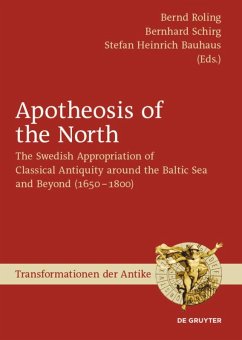Despite its enormous extent and impact, the Swedish scholarship produced in the context of Olof Rudbeck's monumental 'Atlantica' (4 vols, 1679-1702) has hitherto escaped attention outside Scandinavia. The present volume explores the numerous disciplines that comprised this, one of the last, but grandest appropriations of the classical heritage in early modern times. In the decades around 1700, dozens of scholars all around the Baltic Sea embarked on studies of classical and Norse mythology, material remains and antiquities, of languages, botany and zoology as well as biblical scholarship, in order to reveal the primordial status of ancient Sweden. Fusing together numerous disciplines within Rudbeck's elaborate and all-encompassing epistemological framework, they gave to a nation that had advanced to the rank of a European superpower a narrative of a glorious past that matched its contemporary pretentions. Presenting case studies stretching from the 17th to the 19th century and across a wide number of fields, this volume traces the extent and longue durée of one of the most fascinating and underestimated episodes in European intellectual history.
Bitte wählen Sie Ihr Anliegen aus.
Rechnungen
Retourenschein anfordern
Bestellstatus
Storno

